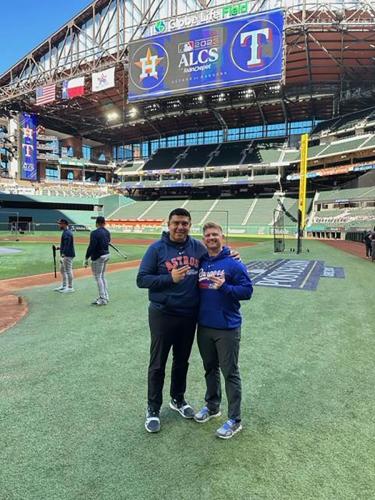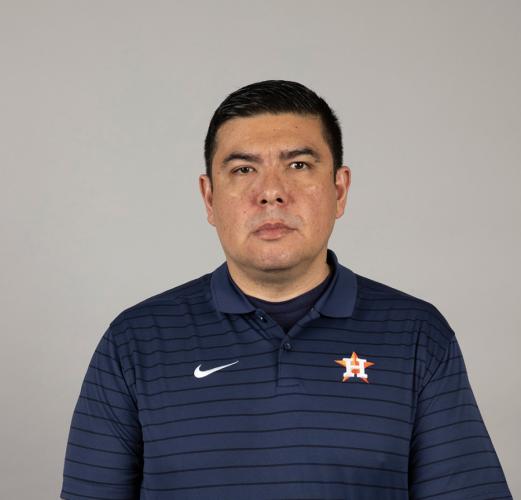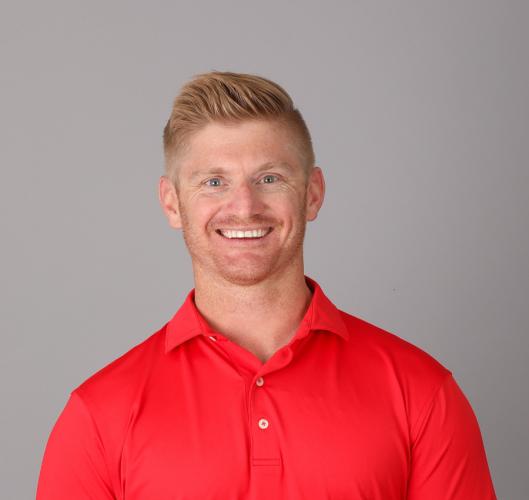NACOGDOCHES, Texas — Baseball is a game of inches.
The game often hinges on minute details — a close play at the plate, a pitcher missing his spot in the strike zone by a whisker, or a long ball hit an inch either to the left or right of the foul pole can be the difference in a memorable home run or a mammoth, yet quickly forgotten, foul ball. All come into play, and all could be the difference between the elation of winning and the anguish of defeat.
The line drawn between the Houston Astros and the Texas Rangers also can be measured, though the distance between the two teams depends on which fanbase you ask.
Referred to as the Lone Star Series, the rivalry began in a friendlier nature during the 2001 season when the teams first met in an interleague matchup. The two even compete for a trophy, and the team with the most wins in the season series takes home the Silver Boot modeled after the symbolic, if not conventional, cowboy boot.
When the Houston Astros jumped from the National to the American League in 2013 and straight into the Rangers’ division, the rivalry evolved from a cordial battle for bragging rights to a win-at-all-costs affair to get a better foothold in the division.
The rivalry intensified when both teams met this week in the 2023 American League Championship Series — the first time in baseball’s rich history that two teams from Texas squared off in the postseason.
But as the dust settled after bench-clearing confrontations, two individuals — one from each organization — share a tighter, more specific bond.
Eric Velazquez and Sean Fields, assistant athletic trainers for the Houston Astros and Texas Rangers, respectively, were in the same cohort and graduated from Stephen F. Austin State University’s Master of Science in athletic training program in May 2010.
The two have kept in touch throughout the years since graduating and occasionally have crossed paths when their minor league teams competed. Now, at the big-league level and competing in the same division, Velazquez and Fields cross paths more often — 13 times in the regular season and counting.
Depending on their workload, their interaction can be as subtle as a head nod and wave, but often it’s a 15-minute conversation in center field to catch up since last they spoke.
“It’s fun to be able to look across the diamond and see [Velazquez] there,” Fields said. “We’ve always kept in touch over the years, but this year has been even more special knowing that we are both where we want to be.”
Eric Velazquez, Houston Astros
Velazquez could only use one word to describe being a part of the Houston Astros organization during their 2022 World Series-winning run –– surreal.
It was his first season with the big-league club, following 12 years as an athletic trainer in minor league clubs, working his way up the ranks with about six years each in the New York Mets and Boston Red Sox organizations. He also worked in winter leagues in the Dominican Republic and Venezuela, worked in the Arizona Fall League and was on Team Columbia’s staff in the 2017 World Baseball Classic.
“I had spent so long working toward being a part of a major league staff that the entire season and playoffs I was just trying to make sure I was doing even the smallest thing to help the team,” Velazquez said about the 2022 World Series-winning run. “After everything was done, I reflected on how fortunate I was to land this job and be able to be involved in that season.”
Velazquez was first introduced to athletic training while working toward a degree in exercise biology at the University of California, Davis, and realized it was a career path he wanted to pursue further.
Spurred by the opportunity to immediately work with the athletic teams and athletes, his pursuit led him to the piney woods of East Texas.
“SFA’s athletic training program provided me the opportunity to be hands on since day one,” Velazquez said. “The extensive, immersive clinical experiences provided different opportunities to learn and begin to formulate a catalog of how to deal with situations.”
Now in his second season in his position with the Astros, Velazquez’s day-to-day responsibilities include preparing players for pregame, game and postgame activity and providing medical coverage during practice and games.
Though the playoffs generate a deeper sense of urgency in the athletic training room, the goal is to keep the atmosphere as close to the regular season feel as possible while working a little more thoroughly.
There is one more goal within the organization: bring another championship back to Houston.
“This year has been such a different year than the last,” Velazquez said. “The team has had to work exponentially harder since the beginning of the season to get to this point. Making it to the World Series would be a huge testament to the team’s ability to persevere and a city that stuck with the team even when things weren’t great.”
Sean Fields, Texas Rangers
Fields is constantly reminded that he’s living his dream.
After spending 14 years with the Texas Rangers organization, Fields was promoted to assistant athletic trainer at the beginning of this season. Now, he works with professional baseball players, watches major league games in the dugout and gets to call Globe Life Field — or any ballpark, for that matter — his office.
“This might be one of the most rewarding careers that anyone can have,” Fields said. “It’s not about recognition and fame, because most of your work is done in the shadows or behind the scenes, but it’s about caring for people when they need someone the most. Whether it be physically, mentally or emotionally. The bonds you build with your athletes will forge relationships that you never knew would exist.”
Getting to this point, however, was quite the journey.
Intrigued with the idea of working in baseball, particularly at the collegiate level, Fields chose a career in athletic training following his undergraduate studies at Texas Tech University and upon his acceptance in SFA’s athletic training program. The program cohort, with a head count of eight students at the time, also interested Fields due to its intimate setting.
During his time in SFA’s athletic training program, Fields also served as an intern with the Rangers, which placed him in the Dominican Republic. This fueled his desire to work in the professional baseball ranks.
“I can honestly say that SFA prepared me for almost every facet of my professional career,” Fields said. “I first noticed it during my internship when I was put in some stressful situations and was able to handle them calmly and collectively due to the experiences and classes taught by Dr. Linda Bobo and Dr. Stephanie Jevas. Conversations on triage and in-game decision making with Sandy Miller also helped to mold my thought processes in tough situations.”
Bobo is a professor and program director of SFA’s athletic training program and has worked in the Department of Kinesiology and Health Science for 21 years. Jevas, who is now director of the athletic training program and professor of professional practice kinesiology at Texas Christian University, served as clinical coordinator at SFA from 2006 to 2012. Miller served as a head athletic trainer at SFA for 31 years, and later served in a part-time faculty role following retirement.
Once his studies were complete, Fields accepted a full-time position with the Rangers in May 2010 that sent him back to the Dominican Republic for the 2010 Dominican Summer League season. From there, Fields worked his way up the organization’s ladder, earning such positions as minor league rehab coordinator and Arizona medical coordinator along the way.
Fields’ responsibilities include preparing the athletic training room and such duties as providing medical coverage during practices and games. He also assists with maintenance treatments for athletes, pre- and post-rehabilitation exercises for various injuries, shoulder and forearm strengthening and maintenance programs, workload monitoring, and postgame treatments.
Leaving the organization has never crossed Fields’ mind.
Throughout his time with the Rangers, the organization has seen its fair share of ups and downs, but Fields credits the resilience and leadership of those in the organization for making it an ideal place to work. He said they’re also why the Rangers have seen immense success this year.
A trip to the World Series would be the first appearance by the Rangers since 2011, and a championship would be the first in franchise history. Fields believes the organization has the personnel to achieve it.
“The time, effort and energy put into the daily grind of a 162-game season is tremendous, and the culmination of that would be getting to play to be World Series champions,” Fields said. “It would be extra special for this organization to have an opportunity to advance and play for the title as well. We have been to the World Series twice in our history and have lost both times. It would be an honor to have the opportunity to be a member of the first championship team.”
Velazquez and Fields are both examples of the well-established success SFA’s Master of Science in athletic training program has had in producing high-caliber professionals.
“The quality of the Master of Science in athletic training is exemplified by its long-standing accreditation by its national organization, the Commission on Accreditation of Athletic Training Education,” said Dr. Judy Abbott, dean of SFA’s James I. Perkins College of Education. “But just as important as an accredited master’s degree are the caliber of graduate students attracted to this degree and the high-quality preparation they experience in this two-year program. These two alumni, Eric and Sean, took their knowledge and skills to professional sports and thrived in that fast-paced, intense setting. We like to think that SFA helped them in being successful in their careers.”
For more information about SFA’s MS in athletic training visit the Athletic Training website.
ABOUT STEPHEN F. AUSTIN STATE UNIVERSITY
Stephen F. Austin State University, the newest member of The University of Texas System, began a century ago as a teachers’ college in Texas’ oldest town, Nacogdoches. Today, it has grown into a regional institution comprising six colleges — business, education, fine arts, forestry and agriculture, liberal and applied arts, and sciences and mathematics. Accredited by the Southern Association of Colleges and Schools, SFA enrolls approximately 11,000 students while providing the academic breadth of a state university with the personalized attention of a private school. The main campus encompasses 421 acres that include 37 academic facilities, nine residence halls, and 68 acres of recreational trails that wind through its six gardens. The university offers more than 80 bachelor’s degrees, more than 40 master’s degrees and four doctoral degrees covering more than 120 areas of study. Learn more by visiting the SFA website.
 Axe ’Em, Jacks!
Axe ’Em, Jacks!


